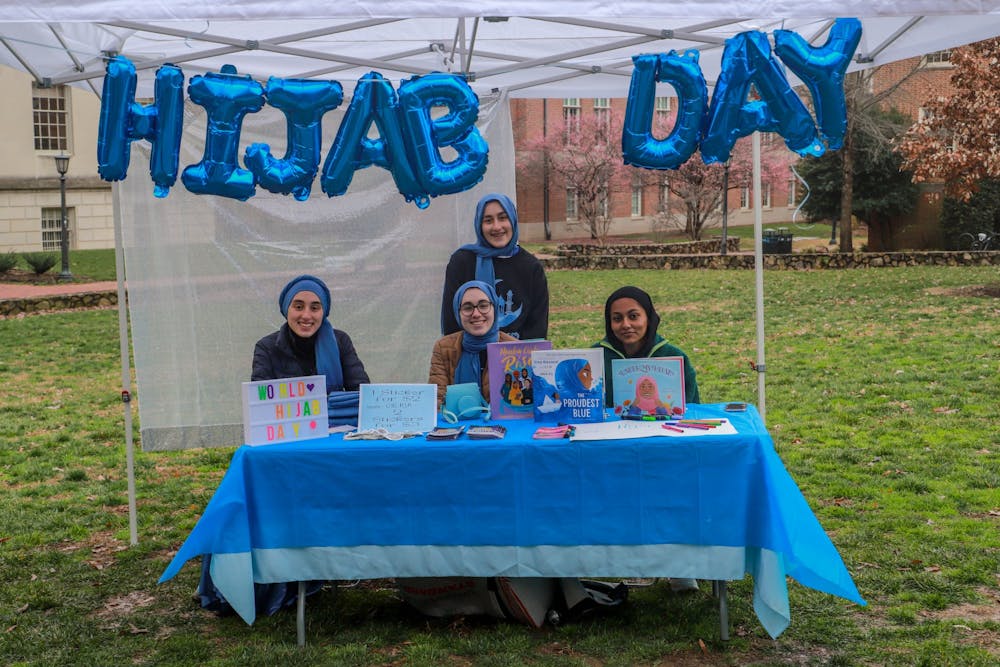A lone table stood under a white tent on the quad Wednesday morning and afternoon.
On the table were children’s books, stickers, pamphlets and polaroid pictures — all featuring women wearing hijabs.
Wednesday, Feb. 1, was World Hijab Day, an international holiday to raise awareness and celebrate Muslim hijabi women. The UNC Muslim Students Association set up a tent in the quad to commemorate the day. Blue letter balloons that read ‘World Hijab Day’ adorned the front side.
“When I think of World Hijab Day, I think of so many people coming together to break the stereotypes of what the hijab is and break the stereotypes of what Islam is — just something that's been portrayed so negatively by Western media, especially when a lot of the information out there about Islam and the religion and the people is so misconstrued,” first-year student and MSA member Mariam Matin said.
Community members who stopped by MSA’s tent had the opportunity to speak with hijabi women and even try on hijabs themselves.
MSA members also sold stickers featuring a hijabi woman’s silhouette. The proceeds went toward Duha, a nonprofit that provides women in Niger with entrepreneurship skills and resources to start their own businesses.
“It's like a whole woman empowerment event in different aspects,” Rida Bayraktar, MSA vice president, said.
But in addition to celebrating the hijab, MSA also sought to bring attention to the prejudice hijabi women face. These women are more vulnerable to hate crimes and discrimination just because they are visibly Muslim, Bayraktar said.
About seven out of 10 hijabi women indicate they have faced discrimination at least once, compared to three out of 10 non-hijabi Muslim women, according to the American Civil Liberties Union.



